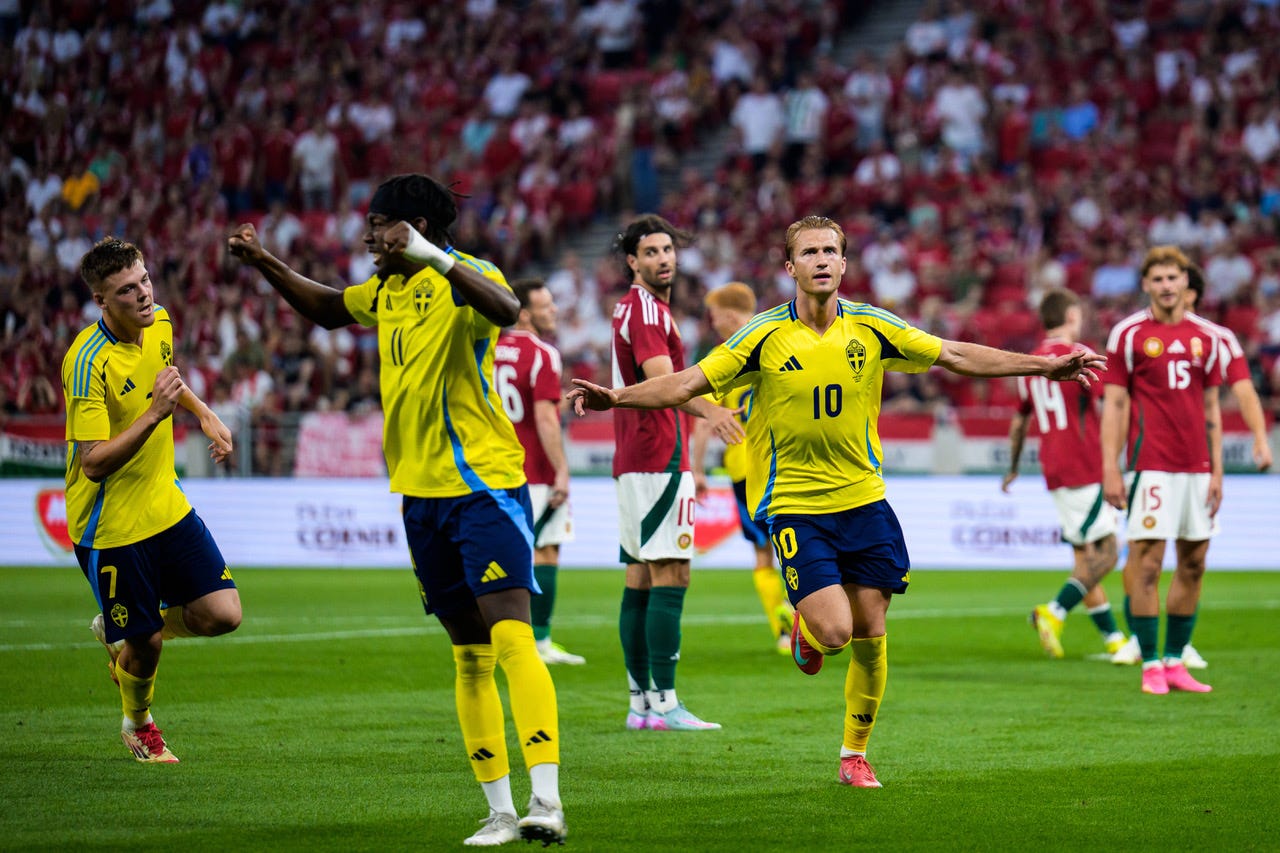Celtic's Summer Signings: Why a One Key Position is Crucial for Continued Success
Celtic are making moves in the transfer market, but as the summer window progresses, a critical need for a combative midfielder to add much-needed steel to the squad is becoming increasingly apparent.
Celtic are actively strengthening their squad this summer, but a vital piece of the puzzle is still missing: a combative midfielder. While new attacking and defensive additions are welcome, the team desperately needs a player who can bring physicality and tenacity to the heart of the midfield, especially in high-stakes matches.
Nygren Arrives as Celtic Address Wing Depth
Celtic recently confirmed their third summer signing, Swedish winger Benjamin Nygren, from Nordsjaelland. The 23-year-old, who boasts an impressive record of 35 goals in 107 games, has joined on a five-year deal. Manager Brendan Rodgers praised Nygren's arrival, which comes amid rumors of Nicolas Kuhn's potential departure. This proactive move ensures Celtic are well-prepared to fill any void on the wing.
The club has also brought in Kieran Tierney and Ross Doohan to replace the outgoing Greg Taylor and Scott Bain, respectively. With potential further departures like Nawrocki and Lagerbielke on the horizon, it's clear Celtic still have significant transfer business ahead.
The Urgent Need for Midfield "Bite"
Despite these additions, a significant concern remains: the lack of a combative midfielder. Last season's derby matches highlighted this glaring weakness. Opponents, particularly Rangers, demonstrated that a relentless, high-pressing approach could disrupt Celtic's technically gifted but seemingly lightweight midfield. Nico Raskin's performance, in particular, showed how aggression and constant pressure could nullify Celtic's creative players, directly contributing to the losses against the Ibrox side.
Celtic's midfield, while technically superior in Scotland, often struggles in physical contests. The team lacks the fight needed to bully and harass opponents, a quality historically present in successful Celtic sides over the decades. Historically, Celtic teams, while offensive, have always possessed a strong spine of physicality in midfield and defence. This current squad, however, appears to be lacking that crucial bite from front to back. To regain their competitive edge, Celtic must prioritise signing a pitbull or rottweiler in midfield, a player who embodies the never-say-die attitude that has been absent since the departure of Scott Brown.
Rodgers' Philosophy vs. Team Needs
The question remains whether Brendan Rodgers, known for his emphasis on technical, build-up play, will sanction the signing of such a player. Bringing in a truly combative midfielder might seem to contradict his established tactical preferences. However, last season proved that even with a plethora of technically gifted players, the team faltered when a physical battle was required. This suggests a fundamental imbalance that needs addressing, regardless of the manager's preferred style.
Other Transfer Priorities and Youth Pathway Concerns
Beyond midfield, Celtic still have other areas to strengthen. A new striker is likely a priority, given Daizen Maeda's workload and Adam Idah's inconsistent form. A reliable left-back backup for Kieran Tierney is also crucial due to his injury history. In central defence, questions remain over the suitability of Austin Trusty and Liam Scales. The potential departure of Maik Nawrocki, reportedly due to Rodgers' preference for a left-footed player in that position, further highlights the need for defensive reinforcements.
However, for many, the midfield remains the absolute key. Young midfielders like Engels, McCowan, and Bernardo are still developing and have shown inconsistency, similar to Reo Hatate. With captain Callum McGregor now 32, a long-term replacement is also a pressing concern.
Unfortunately, the club's youth academy under Chris McCart appears to offer little hope for immediate solutions. A perceived lack of a clear pathway to the first team for young players, despite the recent appointment of Shaun Maloney as Professional Player Pathway Manager, raises questions about the club's strategy for developing homegrown talent. Maloney's managerial record, despite his playing career, has been criticised, leaving many to wonder about the rationale behind his appointment to such a crucial role.
The Jobs for the Bhoys Cycle Continues?
The appointment of Maloney, despite his less-than-stellar managerial stints at Hibernian and Wigan, inevitably raises the spectre of the jobs for the bhoys culture at Celtic. This criticism isn't new and has often been directed at the club's tendency to fill key backroom and youth development roles with former players, regardless of their recent experience or proven success in coaching or management. Figures like John Kennedy (now assistant manager) and Stephen McManus (B team manager) are prominent examples of this trend. While their dedication to the club is unquestionable and their playing careers commendable [Kennedy excluded], the question persists whether these appointments are based purely on merit and the best available talent, or if they are influenced by loyalty and familiarity.
The recent departure of Darren O'Dea, to Swansea as an assistant head coach after a year in the Player Pathway Managerial role, only reinforces this perception. While O'Dea's move was for a more hands-on coaching opportunity, it highlights the transient nature of some of these pathway roles and the constant shuffling of familiar faces within the club's hierarchy. This closed-shop approach clearly stifles innovation and prevents external expertise from truly revitalising a youth system that has demonstrably struggled to produce first-team ready players in years.
Ultimately, while new signings are arriving, the fundamental issue of a lightweight midfield and a struggling youth pathway persists. Without a significant shift in recruitment strategy to bring in a truly combative midfielder and a genuine overhaul of the academy that prioritises meritocracy and demonstrable success over historical ties, Celtic risk facing the same challenges that plagued them last season, particularly in the most demanding fixtures.



